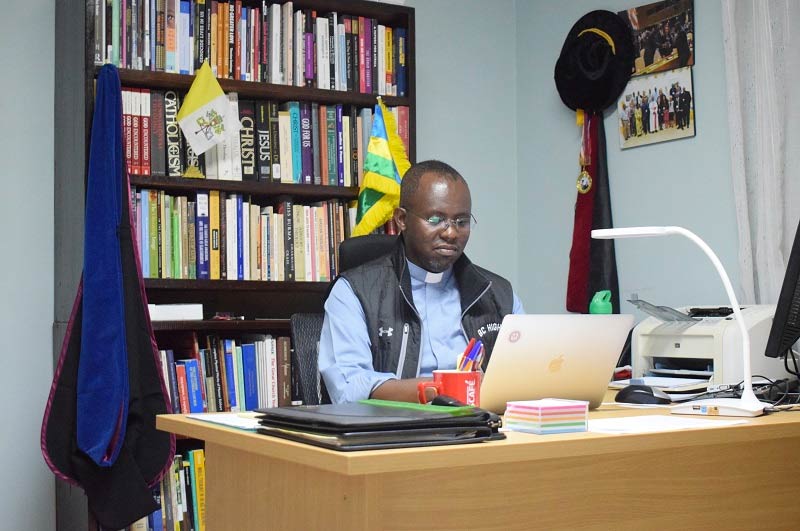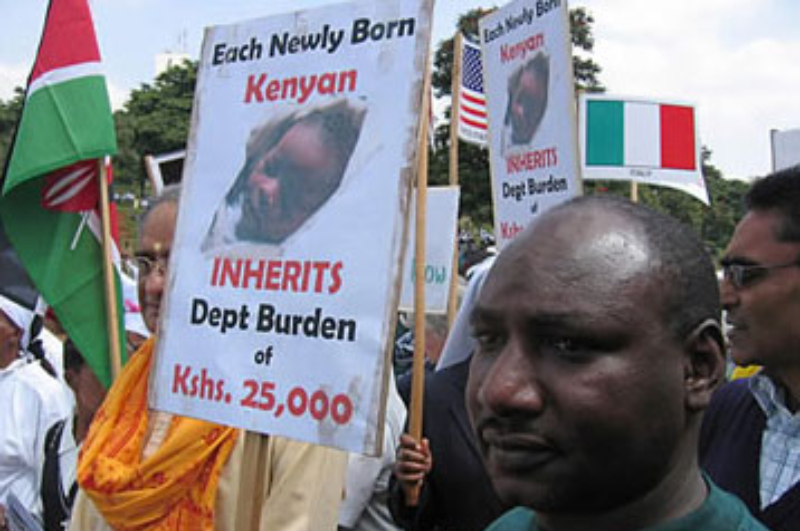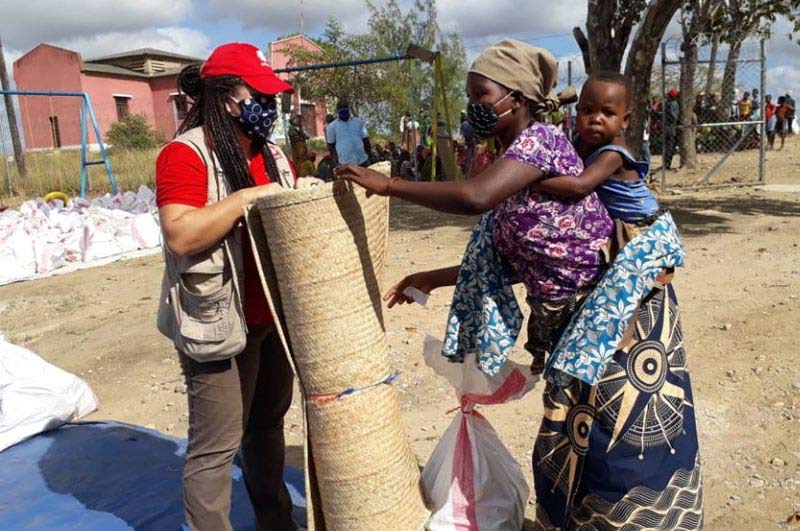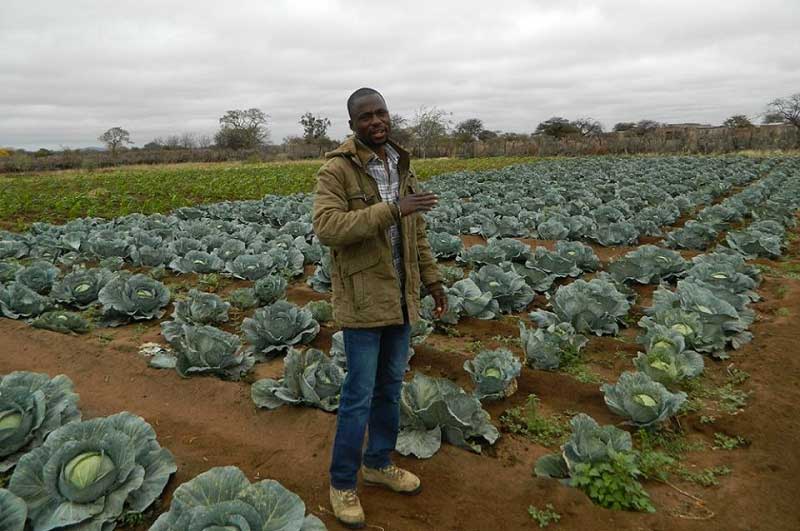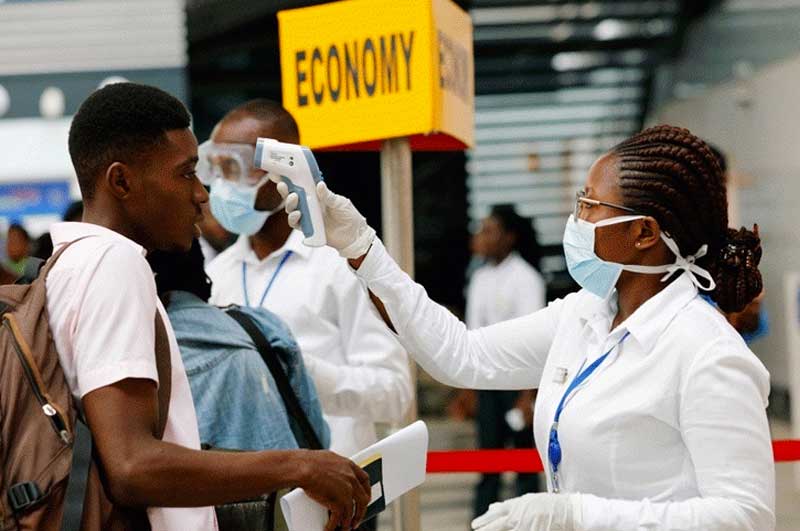


In the last three weeks or so, a common trend has emerged in many African capitals just like elsewhere. Travellers, for both work and leisure, are cancelling flights; businesses are asking workers to stay home and, in some cases, curtailing employment contracts. A global health crisis that seemingly has not affected Africa as much as China and the Northern countries is becoming a social and economic crisis for Africa and many other low and middle-income countries of the world. The African economy is “infected”. For sure we sympathise with all those infected and directly affected by the Corona Virus (COVID-19) and our thoughts and prayers go out to them. In any health crisis, our first concern is and should be the health of those affected.
However, the economic impacts are also having dramatic effects on the wellbeing of families and communities. In Africa and other low-income countries, for vulnerable families, lost income due to an outbreak like COVID-19 can translate to spikes in poverty, missed meals for children, and reduced access to basics like health care, water or housing. For Africa and many low- and middle-income countries from Cameroon to Costa Rica, the spread of COVID-19 is translating into economic impacts that will affect the already most vulnerable populations.
Macroeconomic Impacts The Coronavirus (COVID-19) has resulted in mass production shutdowns and supply chain disruptions due to port closures in China, causing global ripple effects across all economic sectors in a rare “twin supply-demand shock”. In early March the Organisation for Economic Co-operation and Development (OECD) noted that “annual global GDP growth is projected to drop to 2.4% in 2020 as a whole, from an already weak 2.9% in 2019, with growth possibly even being negative in the first quarter of 2020”, with global markets plunging in the days thereafter.
In Africa, the fear of and concern about COVID-19 is growing. A number of countries have put in place strict measures to ensure that the virus does not spread further. However, even though Africa is not as infected as the rest of the world its economy is already “infected” and feeling the impacts of the disease. From the demand side, the immediate exposure for Africa to the economic impact of COVID-19 is trade. China is Africa’s biggest trading partner
There has been a resultant decrease in demand for African commodities. Importers in China are cancelling orders due to port closures and as a result of reduction in consumption in China. Over three-quarters of African exports to China and the rest of the world are heavily focused on natural resources and any reduction in demand impacts the economies of most of the continent. This state of affairs will put a strain on the currencies of these countries as their main source of foreign exchange are their exports to China. Countries such as Angola, DRC, Zambia, Zimbabwe, Nigeria, and Ghana are significantly exposed to risk in terms of industrial commodity exports, such as oil, iron ore and copper to China. Sellers of other export commodities are being forced to offload products elsewhere at a discounted rate.
Now that COVID-19 has spread to the rest of the Northern countries, especially European countries who are Africa’s key trade partners under lockdown, Africa is being double hit. From the supply side, a look at African imports from outside the continent reveals that industrial machinery, manufacturing, and transport equipment constitute over 50% of Africa's combined needs. Currently, external imports from outside of Africa account for more than half the total volume of imports to African countries, with the most important suppliers being Europe (35%) China (16%) and the rest of Asia including India (14%). As such, disruptions due to the impact of COVID-19 will lead to a decrease in the availability of manufactured goods imported into Africa from not only China but from the rest of Asia and Europe.
From the demand side, African exports to Europe have dwindled. The Standard Newspaper, a Kenyan tabloid, reported on 12th March that Kenya’s fresh exports have taken a huge beating following last-minute flight cancellations, including one last Sunday, which left 10 tonnes of flowers to rot. The newspaper reported that a single consignment alone was valued at about Sh12 million (USD$ 120,000), in the clearest illustration of how the economy is hurting from the coronavirus scourge ravaging the world. Besides remittances, flowers are the second biggest source of foreign currency for Kenya, earning over Sh120 billion (USD $ 1.2 billion) last year. “We are very worried about the trend in the main markets because we are running into a big problem,” Kenya Flower Council Chief Executive Clement Tulezi was quoted as saying.
Microeconomic Impacts: Local Markets and Local Business In Africa, the virus’s global impact is in turn directly impacting local economies, which for Africa means ordinary small businesses that form the larger component of the African economy popularly known as the informal sector. Chinese goods imported from China and resold by small business people dominate African informal markets. Such businesses are a source of livelihood for many in Africa.
 A small businesswoman in Nairobi tends to her flower business
A small businesswoman in Nairobi tends to her flower business
Most of the economic impact of the virus is coming from “aversion behaviour.” Aversion behaviour are the actions people take to avoid catching the virus and comes mainly from three sources: 1. Governments impose bans on certain types of activities, as the Chinese government ordering the closure of factories or European countries’ countywide closure of shops or African government ban of flights from affected areas. 2. Firms and institutions (including universities and schools and private companies) take proactive measures to avoid infection. Whether through government bans or business decisions closures of businesses result in lost wages for workers in many cases, especially in the informal economy where there is no paid leave. 3. Individuals reduce trips to the market, travel, going out, and other social activities.
These actions affect all sectors of the economy and they, in turn, translate into reduced income both through the supply side (reduced production drives up prices for consumers) and the demand side (reduced demand from consumers hurts business owners and their employees). Many traders are worried that products from China already in short supply will soon run out completely. "We might be able to source our supplies from other countries, for example in Dubai," said Catherine Wachira, a businesswoman from Nairobi. But there are certain products that she cannot find at reasonable prices in either Dubai or other possible sources. Catherine usually travels to China several times a year to buy electronic goods, cosmetics, and hair styling products. That is not possible at the moment. “In Nairobi and several other African cities, stocks of certain goods, including groceries, from China have already been significantly decimated, leading to higher prices, said Waweru, president of the Nairobi Traders Association. "Electronic products, in particular, are getting scarce." Many importers who normally fly to China regularly are currently unable to buy the goods they need due to entry restrictions.
Supply chains have been interrupted for weeks now because many Chinese factories shut down production. Small business selling textiles, electronics or household goods are in trouble. A businessman from Accra complained that many goods from China no longer arrive in Ghana. Alternative suppliers are very limited: "At the moment it is very difficult to replace the Chinese," a local businessman said. A local Zambian importer expressed similar sentiments: "We could try to buy the products we need in India or Dubai. But we would probably have similar problems because the emirate also imports most of its products from China."
 A clothing shop in Nairobi and a hawker displays his goods to customers amidst the coronavirus crisis
A clothing shop in Nairobi and a hawker displays his goods to customers amidst the coronavirus crisis
Nigeria's small businesses are equally among the worst hit. It is claimed that no other country in Africa consumes more Chinese products than Nigeria, "Chinese products are usually found in all parts of Nigeria," said a businessman from Lagos. One group of businessmen and women affected in this regard are currency traders. One operator of a currency exchange shop in Lagos shared that he has suffered considerable losses in recent days: "People are no longer coming to the exchange office to buy foreign currency because nobody wants to travel to China, he said." Many business people in the region cancelled overseas trips. Consequently, the import of Chinese products has declined noticeably, there are even sporadic shortages and this is pushing prices up.
Similar stories came from Zimbabwe. The country also appears to be experiencing considerable supply shortages. This is a double blow to the already ailing Zimbabwean economy: "Before the coronavirus outbreak, I ordered some goods from China. But they never arrived in Harare. Our customers are angry," said a retailer from Zimbabwe. Many Zimbabweans travel to China to order cheap goods.
Other than the reduced availability of Chinese supplies for resale by African retailers the other impact is coming from government directives to stop or minimise several activities like big meetings, weddings, religious gatherings, etc. The small suppliers of commodities to such events have lost considerable amounts of income. Elizabeth Wanjiru, a supplier of flowers had this to say: “We are at a big loss. In the last two weeks, we have made losses of unsold supplies of flower and as you know flowers are perishable goods…What this simply means is that we have no income for food, housing, and other basic needs. We are suffering.” Another supplier of household items in Nairobi, Johaden Mbula lamented for a whole day “I have only been able to sell Kenya Shillings 100 (USD $1) worth of goods.”
Most of the African Economy is Informal Most of these impacts we are talking about are in the informal economy, the major source of livelihood for most Africans. As a result, they have not been fully quantified and reported on. So far most of the economic impact analyses have been focused on the formal African economy, like airlines losses, trade, infrastructure, energy, insurance, formal businesses, etc. The informal economy in Africa is big business. The implication here is that interventions to mitigate the impacts of COVID-19 may miss those who really need support.
The International Labour Organisation (ILO) estimates that the average size of the informal economy as a percentage of gross domestic product in sub-Saharan Africa is 41%. This ranges from under 30% in South Africa to 60% in Nigeria, Tanzania, and Zimbabwe. It is also a huge employer. It represents about three-quarters of non-agricultural employment, and about 72% of total employment in sub-Saharan Africa. Most of those in the informal sector are women and young people who have no other choice than the informal economy for their survival and livelihood.
The informal sector in Africa supplies all manner of merchandise ranging from textile to electronics most of which is imported from China. As already observed already in the foregoing analysis, the shortage of supplies for the ordinary business people in Africa means no business and no income. This situation is aggravating the already existing problem of poverty in Africa. Africa is the world’s last frontier in the fight against extreme poverty. Today, one in three Africans, which is 422 million people, live below the global poverty line. They represent more than 70 percent of the world’s poorest people.
A matter of concern is that the economic impacts of COVID-19 can quickly reverse the gains made in poverty reduction in Africa in the last decade. According to projections from the World Data Lab, by the end of 2019, and for the first time since the start of the SDGs, more Africans were escaping extreme poverty. Already, the pace of this poverty reduction was deemed very small. It was expected the pace would increase but with the coming of the current crisis the pace will be reduced further if not reversed.
What should African Countries do to minimise the economic impact of COVID-19? Firstly, deal with the pandemic. African countries, both as individual countries and as regional economic bodies or even as an African Union must develop a viable plan to defeat the outbreak. Containing the disease is the first step to mitigating not only the health impacts but also the economic impacts. Countries must step up awareness building and scale up the sensitization of populations on what to do. The video image of President Kagame demonstrating how to sanitise hands is one such very good example. The fact that the spread pf the virus to Africa has delayed and is slower than elsewhere is a blessing African government should take advantage of. It is gratifying that the World Bank has already made available about $12 billion while the IMF has made available of a loan facility of $50 billion through its rapid-disbursing emergency financing facilities for low-income and emerging market countries that could potentially seek support. Of this $10 billion is available at zero interest for the poorest members through the Rapid Credit Facility.
Strengthen the safety net. As we have shown, the economic impacts of COVID-19 will be felt most by vulnerable households. They are the least likely to have savings to survive an economic downturn. But added to our foregoing analysis is that when bans for outdoor activities increase, they will not be able to work remotely to avoid contracting the virus. Therefore, governments must make sure there is an economic safety net—cash transfers, sick leave, subsidized health coverage—in place. Added to this is any support to help the most vulnerable to survive and the small enterprises which are losing business on account of shortage of supplies from China.
Gathering Data. Governments must ensure that systematic data on populations experiencing the greatest hardships is gathered. As noted, most of the economic impacts will be in the informal sector about which there is very inadequate data. Others have suggested simple data gathering as was done during the Ebola epidemic of 2014-15 can be employed. Researchers used phone surveys in Sierra Leone and in Liberia to gather just-in-time information on the impacts of both ill-health and aversion behaviour on households and enterprises across the countries. Measuring impacts by acquisition of relevant and necessary data will ensure that the most vulnerable are helped.
Charlie Chiluf ya, S.J. is the Director of the Justice and Ecology Office (JEO) of the Jesuit Conference of Africa and Madagascar
Related Articles

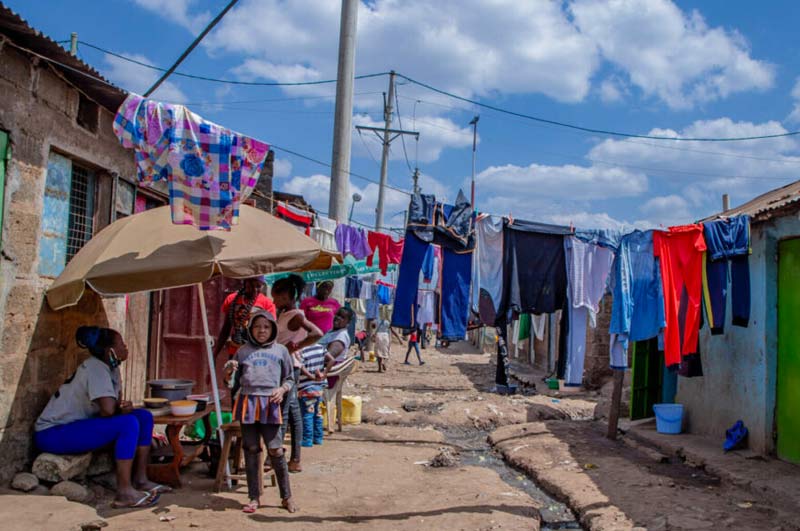
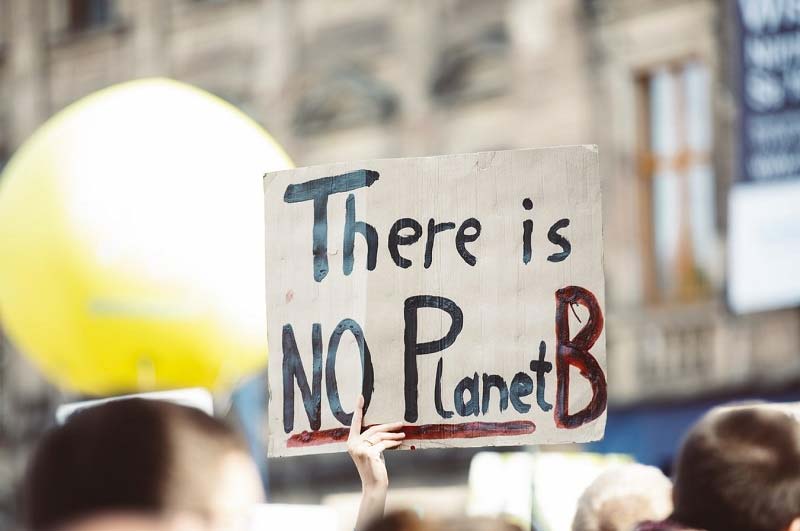
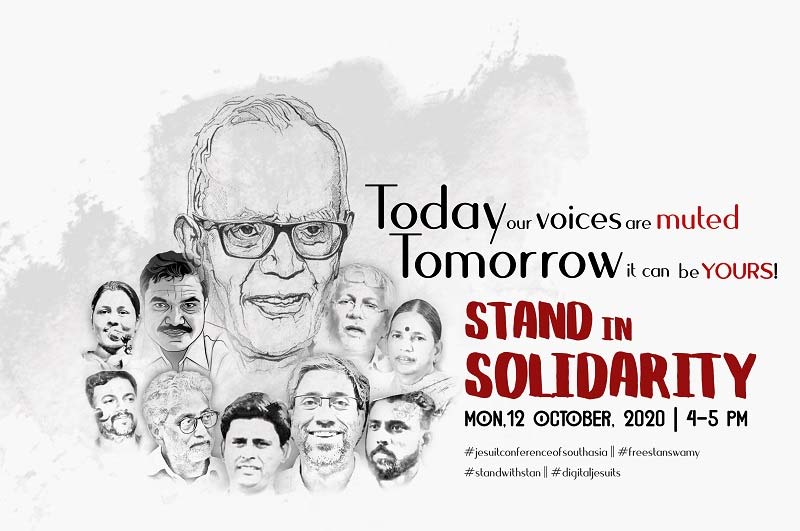
Select Payment Method
Pay by bank transfer
If you wish to make a donation by direct bank transfer please contact Fr Paul Hamill SJ treasurer@jesuits.africa. Fr Paul will get in touch with you about the best method of transfer for you and share account details with you. Donations can be one-off gifts or of any frequency; for example, you might wish to become a regular monthly donor of small amounts; that sort of reliable income can allow for very welcome forward planning in the development of the Society’s works in Africa and Madagascar.
Often it is easier to send a donation to an office within your own country and Fr Paul can advise on how that might be done. In some countries this kind of giving can also be recognised for tax relief and the necessary receipts will be issued.



